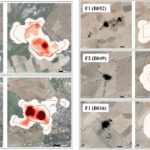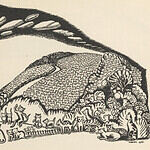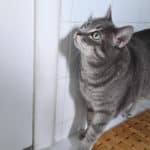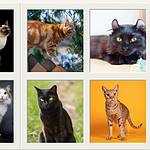Of all the human foods that cats will beg for, cake is pretty far down on the list of what we expect our pet to want. Yet, there are some cats that seem to absolutely love eating cake. What makes this craving even more odd is that cats lack the ability to taste sweetness.
Cats don’t have a taste receptor for sugary foods
The cat’s tongue, similar to that of other mammals, is equipped with taste receptors that allow it to detect various flavors. While humans have receptors that enable them to discern diverse tastes like bitter, salty, sour, savory (umami), and sweet, the feline taste receptors are configured differently, lacking the specific receptors to identify sweetness.
Cats, including the domestic cat (Felis silvestris catus), are believed to be the only animal that is unable to taste sweetness. Researchers encoded the DNA and found that cats lack two genes known to encode the ability to taste sweetness: Tas1r2 and Tas1r3.
All cats are hypercarnivores. This means they require an incredibly high amount of protein. As obligate carnivores, the diet requirements of a cat is almost entirely meat and fish based. The taste of sweetness is an indicator of rich carbohydrates, something a cat would not need to taste as part of their natural diet.
So if a cat can’t taste the sugar in cake, why do some felines seem to love eating this desert?
Cats like the texture of cake
One theory centers on the texture of the cake itself. Many cakes are soft and moist, providing a texture that cats might find appealing. This could be particularly true for cats that prefer softer foods, possibly due to dental issues or just individual preferences.
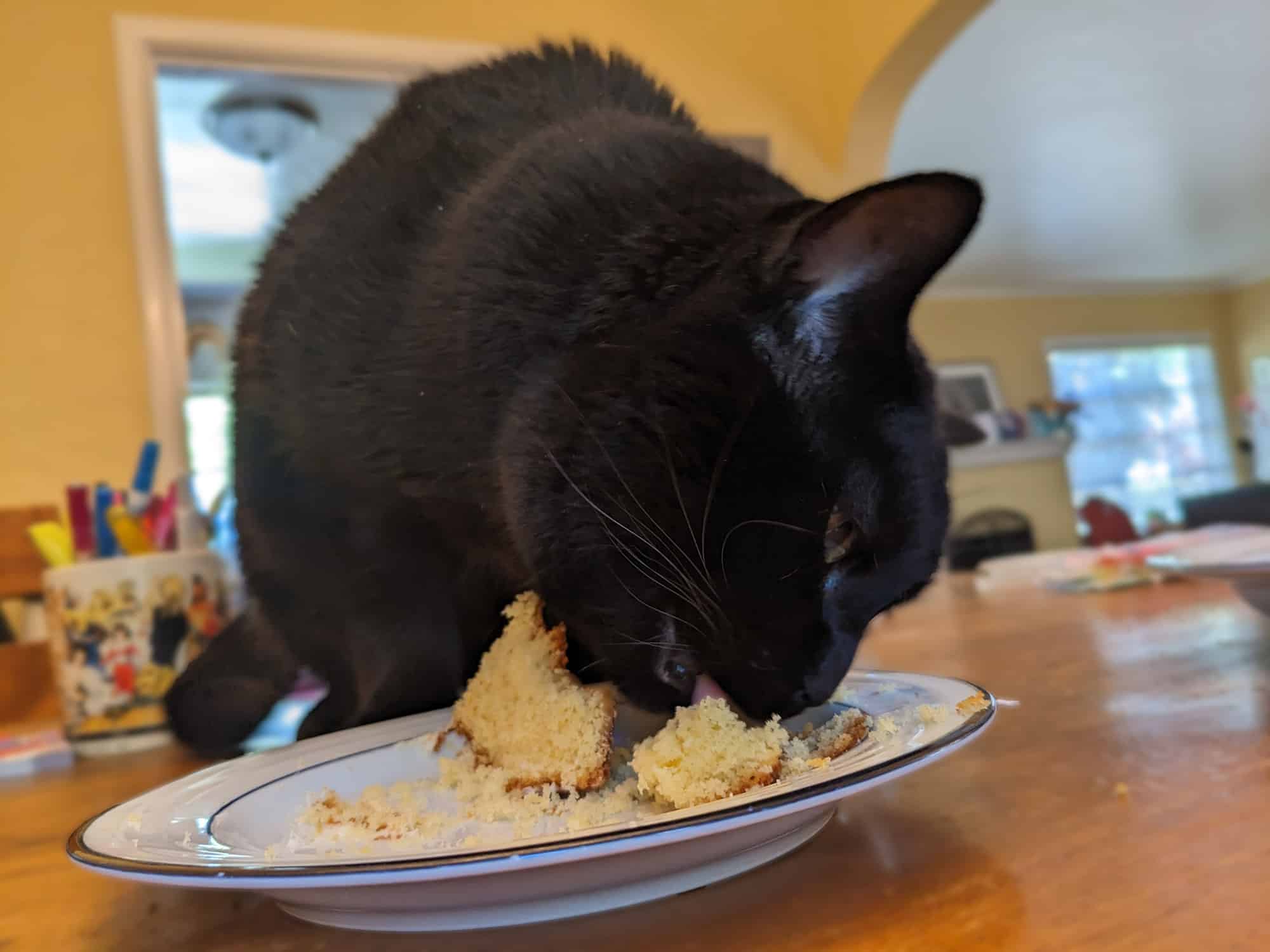
Cats crave sources of fat
Another explanation focuses on the fat content in cake. Even though they can’t taste sweetness, cats can detect fats, and many find them appealing. Cake often contains butter, eggs, and other fatty ingredients, which might be what draws cats to this treat. Fats are a crucial component of the feline diet, providing energy and aiding in the absorption of vitamins.
Cats like to be part of their owners’ activities
Cats are known to bond with their owners and this includes wanting to partake in whatever you are doing. It’s why your cat will sit in the middle of the pieces while you put together furniture. It’s why your cat will sit on your laptop while you are trying to work. Observing you and trying things that you do is how your cat learns to open doors in your house.
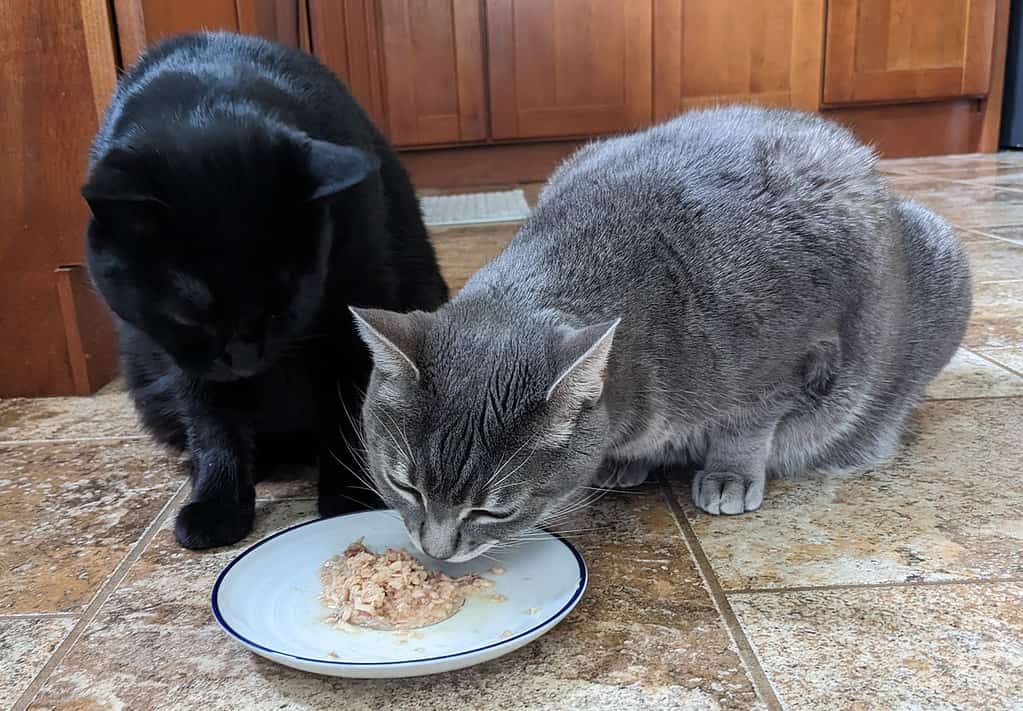
This need to be included extends to the food that you’re eating. Cats often observe their humans’ behavior and might associate the eating of cake with pleasure or satisfaction. In some cases, if a cat has been given a taste of cake in the past, they might remember the experience positively, even if the sweetness itself had no effect on them.
Your cat may have a heath issue
If your cat has a sudden change in their eating habits, this could indicate that they have a hidden illness or health issue.
One of our cats, who was extremely picky for the first eight years of her life, developed a voracious appetite. This change in eating behavior included begging for table food, something she had never done before. Even cake was not safe from her scavenging. After multiple diagnostic tests, she was ultimately diagnosed with feline acromegaly, a tumor on her pituitary gland which was fueling uncontrolled diabetes and a ravenous need to eat.
Is cake safe for cats to eat?
It depends on the ingredients. Some cakes, in very small amounts (like the crumbs leftover on your plate) and very infrequently are okay for your cat to eat. Other cakes may have harmful ingredients in them, like chocolate or artificial sweeteners, and you should never offer a taste to your cat.
Overall, cake is not something your cat should be eating very much of, if at all. Cats have specific high-protein dietary requirements and should almost exclusively eating cat food that has been created with their nutrient profile in mind. As a fun treat, there are healthier options you can offer to your cat such as green beans.
References
Callaway, E. (2012, March 12) Carnivores pick meats over sweets. Nature. https://doi.org/10.1038/nature.2012.10207
Li, X., Li, W., Wang, H., Bayley, D. L., Cao, J., Reed, D. R., … & Brand, J. G. (2006). Cats lack a sweet taste receptor. The Journal of nutrition, 136(7), 1932S-1934S. https://doi.org/10.1093/jn/136.7.19


